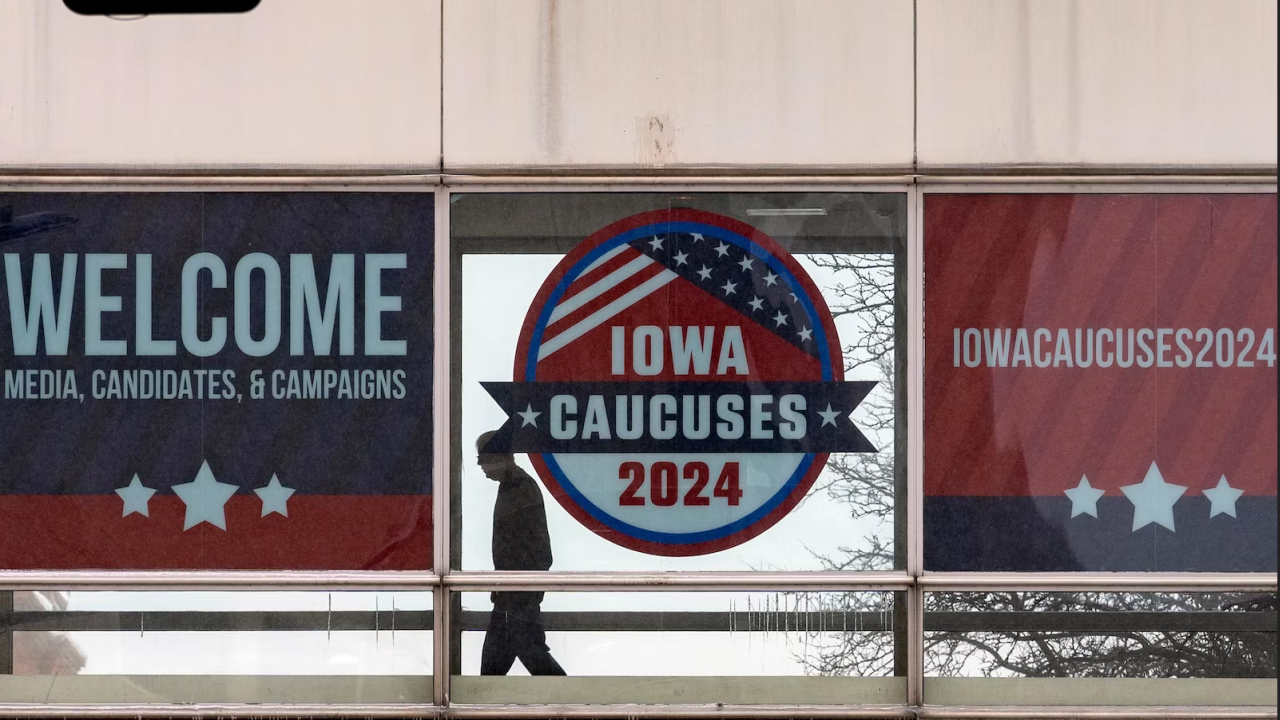Americans have an obsession with symbolic dates. It’s part of being a young nation. They’ll get over it, eventually. But until that happens (and it won’t happen this century), the Iowa Republican caucuses are a symbol: it’s the official date that marks the start of the election season.
It’s not even an old tradition. It dates as far back into pre-history as… 1996. Prior to 1996, there were other states and other primaries (and not always Republican) that would hold the first primary election. In fact, prior to 1972, the whole primary process wasn’t heavily publicized and it involved a lot more basic politicking than now – like having ‘favorite sons’ – which meant State politicians running only in their home state so they can slate their own delegates and act as kingmakers at the Convention.
Somehow, however, it got into the minds of political observers in the US and abroad (!) that the Iowa caucuses are not only significant (they’re not – they decide 1.6% of overall delegates), but that they’re somehow a bellwether. That somehow the candidate that wins the Iowa caucuses takes a relevant lead in the overall competition. There’s just one problem: It’s not true.
Statistically, the winner of the Iowa caucus on the Republican side became the nominee in 43% of the cases since the introduction of this system in 1972. Since the Republican Iowa caucuses became the symbol (de jure in 1992, de facto in 1996), the record is even more stark. Here’s the winner of the Iowa Republican Caucus since this contest became a symbol:
- 1992: Caucus cancelled ❌
- 1996: Bob Dole ✅
- 2000: George W. Bush ✅
- 2004: Caucus cancelled ❌
- 2008: Ron Paul ❌
- 2012: Mike Huckabee ❌
- 2016: Ted Cruz ❌
In other words, it’s been nearly a quarter of a century since these have predicted the nominee and even when they did predict the nominee, it was far from clear at the time that that would be the case. George W. Bush barely beat Steve Forbes in a 5-way race getting 10 delegates out of the 25. And Bob Dole got only 3% more than arch-conservative Pat Buchanan.
As we write these lines, the Iowa Republican Caucus hasn’t even begun and that’s exactly the point: At the end of them we’ll all still be none the wiser on how the primary contest on the GOP side will turn out.
But one thing is certain: After the Super Tuesday or so, there will be at least two, if not three groups of influencers, commentators and other social media personalities that we will all be able to poke fun at.
And while we completely understand those who work in one of the campaigns – and the Sofa salutes all of its political operative friends currently campaigning – we have less understanding for people who aren’t paid by any of the campaigns and yet they approach this issue with so much vigor and so little wisdom. Similarly, while we understand those who placed a bet, we also feel that one’s personal financial interest should be kept separate from evaluating the relevant data (or, in this case, lack thereof).
Over the last 6 months, our mailbox was consistently bombarded with messages about the GOP contest and pressure to predict things, only to then “disappoint” by repeating this: It’s too early. We’ll see what happens.
In other words: No, you have no idea who will be the nominee, anymore than anyone else. Sure, you can pick “team” and stick with it and be lucky. But that doesn’t make you an expert.
The 2024 election season on the GOP side resembles the 2008 and 2012. An old establishment (like it or not, Trump is the GOP establishment now) challenged by relatively low-energy contenders. The only thing special is that there’s two Indians in the race – Nimarata Randhawa (aka Nikki Haley) and Vivek Ramaswamy, whose policies are great, but whose name not even his supporters can spell correctly in one fell swoop.
Democrats aren’t any better. Their top contender is also an establishmentarian octogenarian who is not liked anymore even by his party. And a presumed VP, Kamala Harris, who in 2020 got 1% among the Democrats in California.
The 2024 election season in the US is not, and will not be energetic and exciting like the 2008, 2012 and 2016. There’s no-one to drive energy. There’s no contemporary Obama, or Ros Perot, or even a Ron Paul for entertainment. The crazy ticket (RFK Jr.) went independent, Trump of 2024 is boring and unhinged and Biden’s primary challengers raise no reaction. So unless the Democrats decide to pull a surprise (like voting for Dean Philips en masse on March 5),… there is no hope for anything fun.
In addition to Trump and Biden, there’s also Marianne Williamson (D-MN) and Asa Hutchinson (R-AR) in the primaries who are over the age 70. RFK Jr’s 70th birthday is tomorrow, January 17. Out of the 9 candidates in total (3 Democrats, 5 Republicans and one Independent), five of them are aged 70 or older. Did we mention there’s too many old people?
In a competition dominated by old or very old people, of which the presumed top favorites (Biden and Trump) are in increasingly poor health… expecting some excitement is misplaced. Especially before Super Tuesday (which is on March 5, for those who don’t follow American politics that closely).
So the good word from the Sofa is this: Unless you’re a member of one of the campaigns, don’t waste your time with the mudslinging until after the Super Tuesday (assuming it’ll still be worth it by that time).
Oh, and don’t waste your time with the polls either. In late December 2007, all of the “credible” polls maintained a large double-digit advantage for Hillary Clinton to be the next POTUS. Poor Hillary 😂
But no, seriously: Anyone who tells you that he knows now how things will turn out is either crazy, a grifter, or works with that campaign. It’s way too early to even make an educated guess, let alone a sound prediction. And the result of the Iowa Caucuses won’t change that. The Super Tuesday might. Unless we’re headed towards a b0rked Convention. Now THAT would be exciting.
Make of that what you will.


